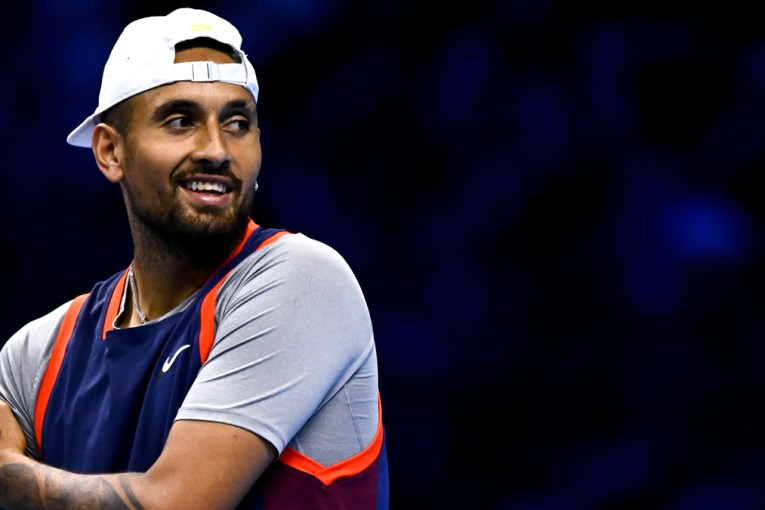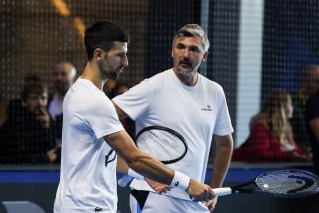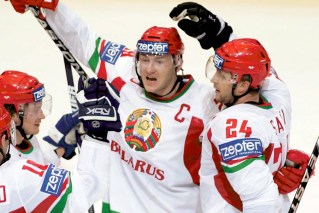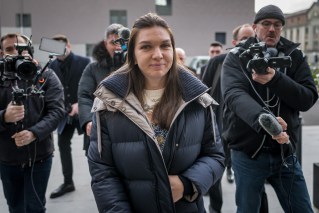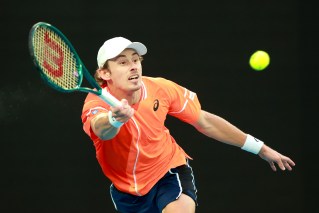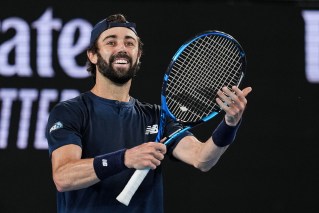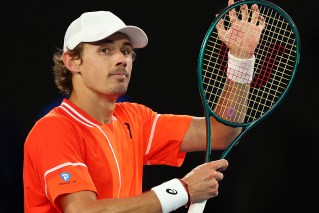Federer: We’re still smitten after all these years

His Highness just dropped an F Bomb. There’s a few dozen of us sitting on an outside court at Melbourne Park, engrossed in his training session in a manner not befitting grown adults. For half an hour, the human hovercraft barely makes a sound. There’s nothing but the pang and the pop and the pock of ball on racquet. Twice, he will mishit the ball and admonish himself — daaaagh! — a Swiss tantrum of sorts.
And then we hear it. I have a hitting partner and a handful of photographers, cameramen, security guards and backpackers as witnesses. It’s as blasphemous as it is improbable. It’s like a mobile phone going off in a church or the Queen joining in a Mexican Wave.
Roger Federer is no deity of course — just an affable, multi-lingual father of twins who happens to have sent the fibrous felt of a tennis ball to places no-one ever imagined. To anyone not familiar with him, he could be just another well-heeled, follically-fortunate European on vacation. Unlike Djokovic or Nadal, you wouldn’t automatically pick him as an elite sportsman. His mouth, on other faces, could be construed as a sneer. Like most tennis players, he has disproportionately large calf muscles, pronounced traps and a right forearm that is noticeably bigger than the left. But there’s an elasticity to him — the kind that you see in yoga studios. At 31, an age where most people groan involuntarily as they get up from the couch, he maintains the lightness of an ice-skater. He’s slowing down, yes, but as nimble as ever.
He can still make your jaw drop, your eyes protrude and produce sounds that bring your spouse in from another room to see if you’re ok.
To the layman, hitting thousands of little balls under a baking Australian sun is one of the more tedious things a human being can do. Elite swimming training strikes you as being the same. But swimmers and tennis players insist that they are fully immersed in what they do. They are making subtle adjustments, ironing out chinks, pursuing new angles and operating in an almost meditative state. The late David Foster Wallace, who penned an oft-cited hymn to Federer in 2006, described it in an earlier essay as “fusing talent with repetition to such an extent that the variables are combined and controlled without conscious thought”.
Serious tennis fans — those flint-hearted baseliners of life — tend to root for Novak or Rafa over Roger these days. Both, they insist, are more than mere pulverizers. Both, they insist, are smarter, more adaptable and have paid significantly more dues than Federer ever did.
His critics — and they do exist — point to his imperious air, his occasional on-court snarkiness, his man purse, his gold striped cardigan, his tally of titles etched on his shoes like notches on a bedpost. They point to his inability — perhaps his unwillingness — to adjust his game and fight and scrap as the men’s game entered a more attritional age. One writer compared him to “the puzzled Czar Nicholas II, waiting for the world to right itself and restore his throne”.
Granted, the magic seems to be fading. Last year was the first in over a decade in which he didn’t reach a Grand Slam final. He lost to a 116th ranked Ukrainian in the second round at Wimbledon. Whereas Novak walks taller and Rafa runs harder when the blowtorch is applied, the Dodger doesn’t seem to have a Plan B.
But the fly-by-night tennis fan — your author included — just won’t cop it. We have been wooed, we have swooned and there is no going back. With a flick of the wrist, he can still charm the birds from the trees. The idea of him shrivelled to mortal proportions doesn’t bear contemplating.
So many sporting titans of the past half a century had inglorious endings. Bjorn Borg retired at 26, judged a bikini contest, moved in with the 17-year-old winner, blew his money, overdosed on sleeping tablets and embarked on a comeback nine years later, complete with wooden racket. In the end, he was losing to graphite-wielding hacks who were scarcely fit to iron his headband.
Boxing writer Hugh Mcilvanney’s write-up of Muhammad Ali’s farcical last fight was titled ‘The King Who Went Out On A Dustcart’. Even Lance Armstrong, who was as popular as any of them as the height of his clout, is just an asterisk now. Federer, thankfully, doesn’t seem the type to outstay his welcome.
John McEnroe once talked about the transitory nature of elite sports. “They may be awe-inspiring at the moment but then the moment is gone,” he said. “They are a little like poetry written on water.” The Federers of this sporting world endure however. Flawed? Perhaps. Fleeting? Never. Finished? Not quite. To paraphrase Foster Wallace, he can still make your jaw drop, your eyes protrude and produce sounds that bring your spouse in from another room to see if you’re ok. There’s still twinkle in his toes and still buckle in his swash. There’s still, you feel, a masterpiece or two left in him.
